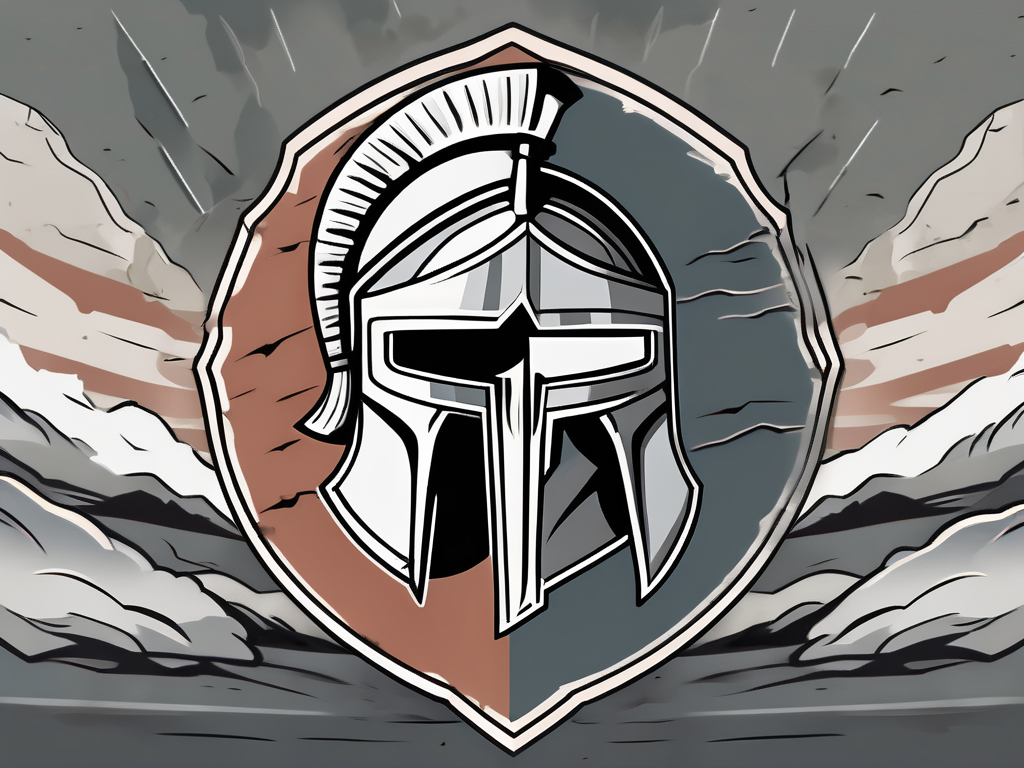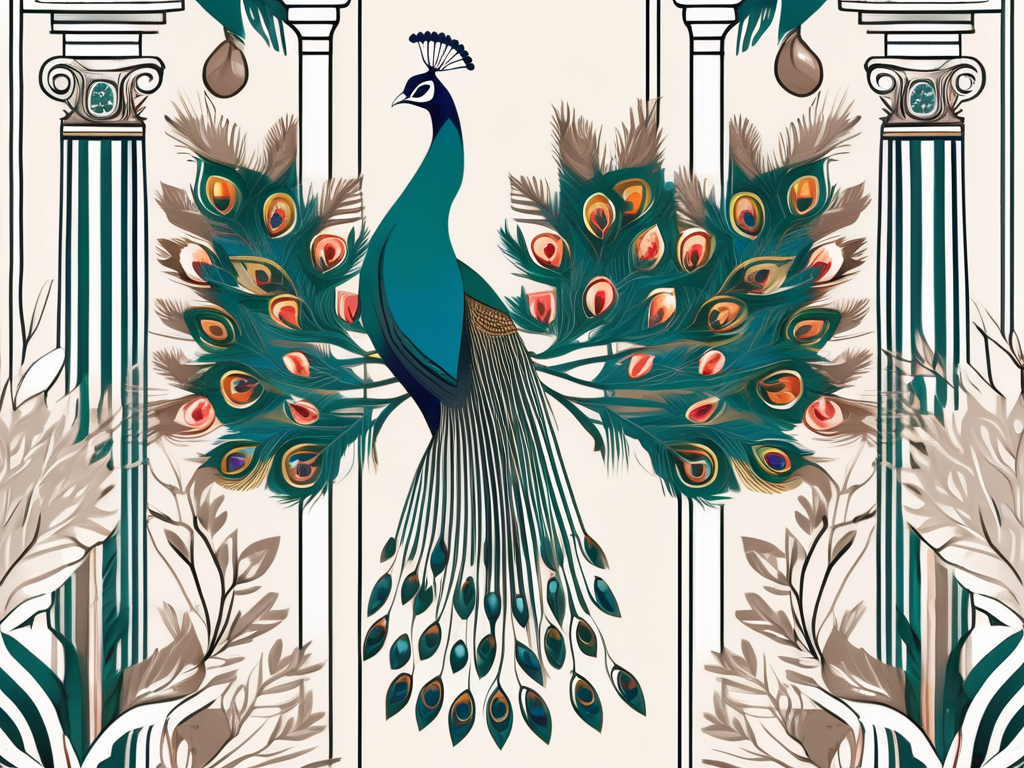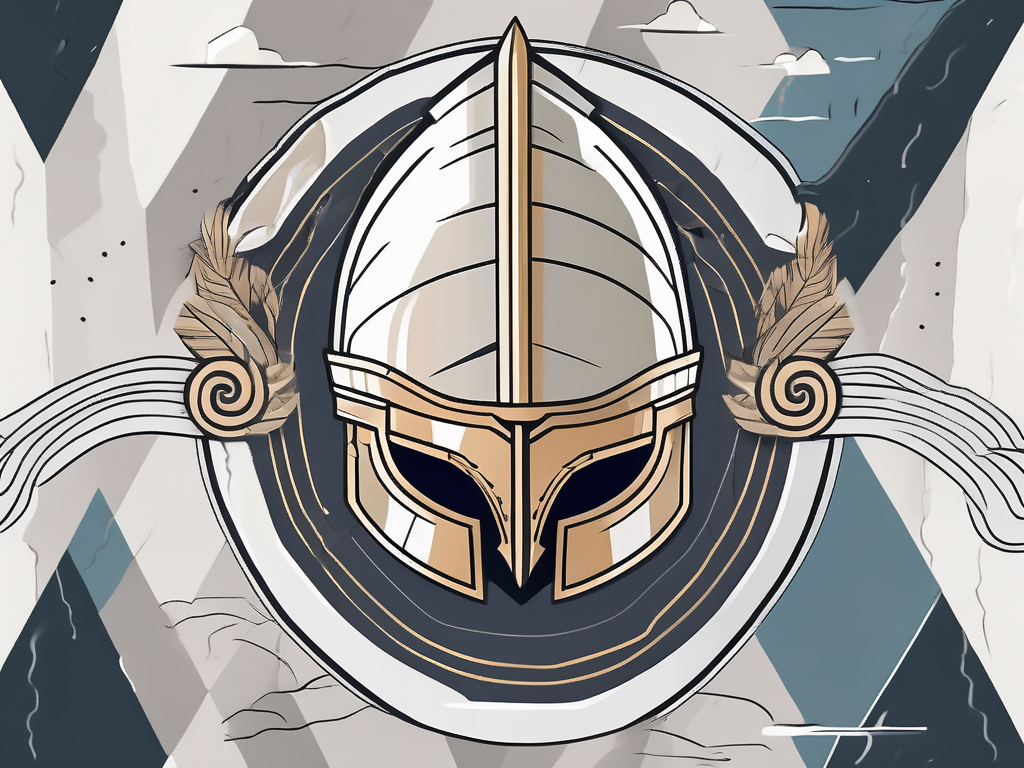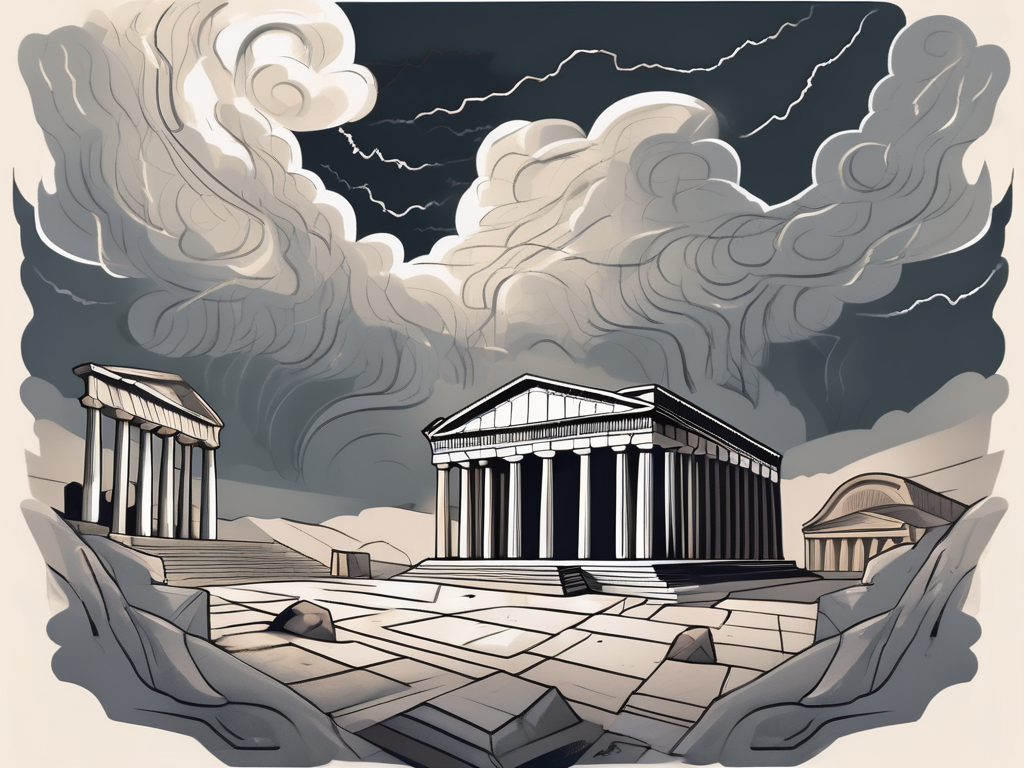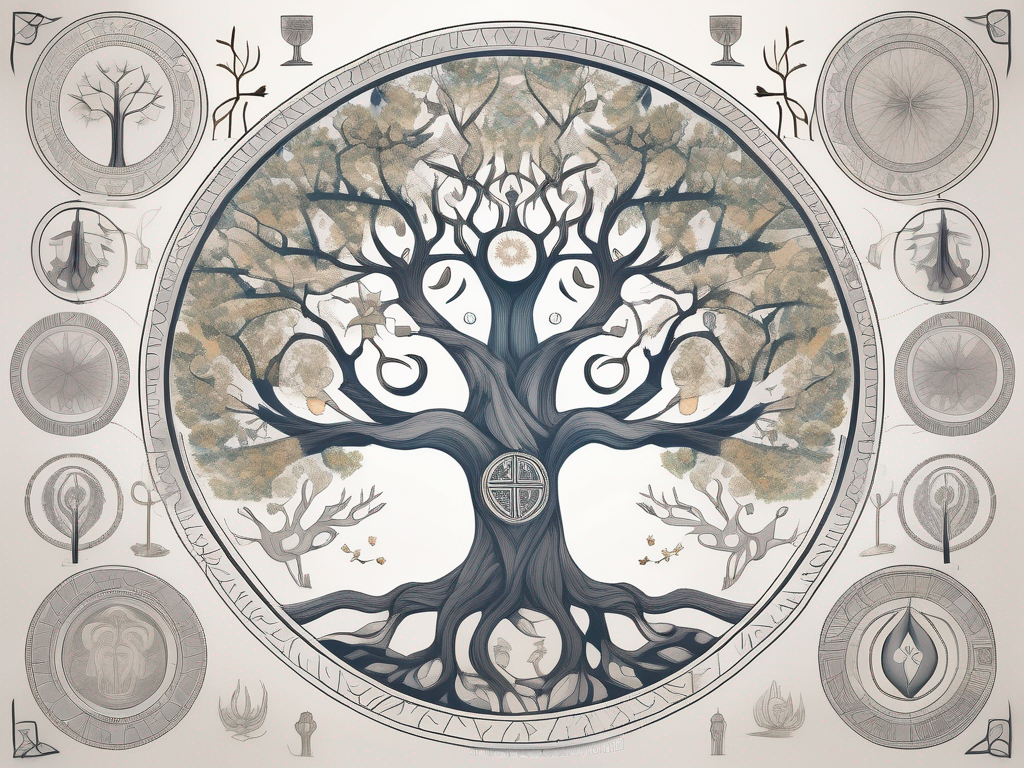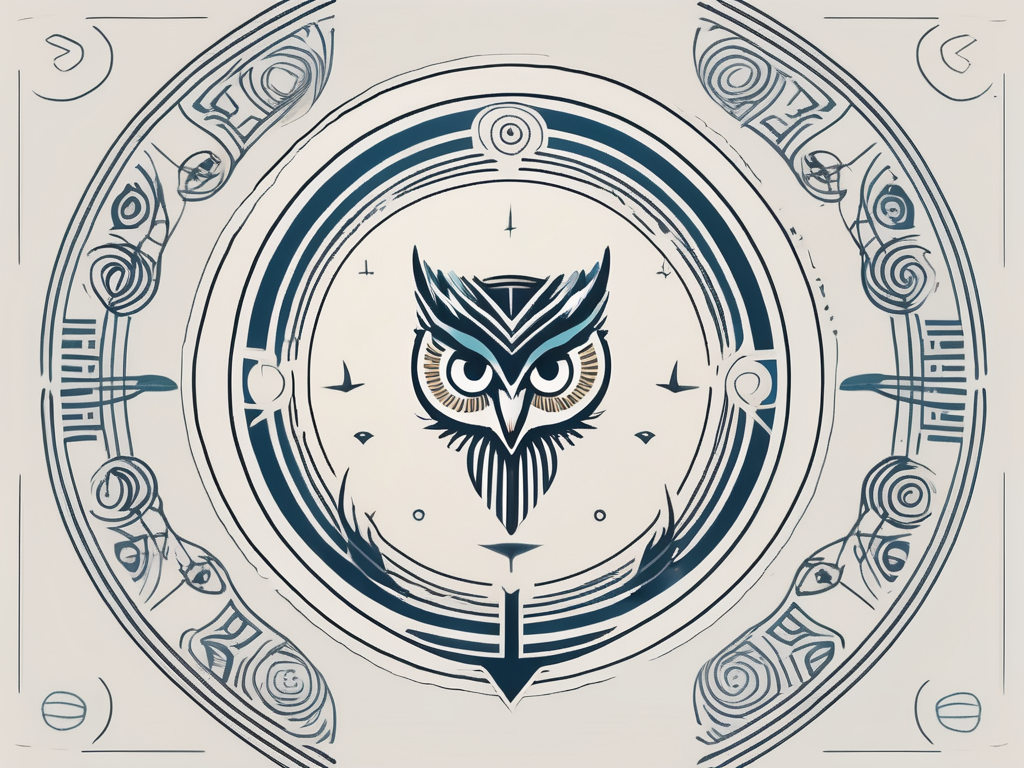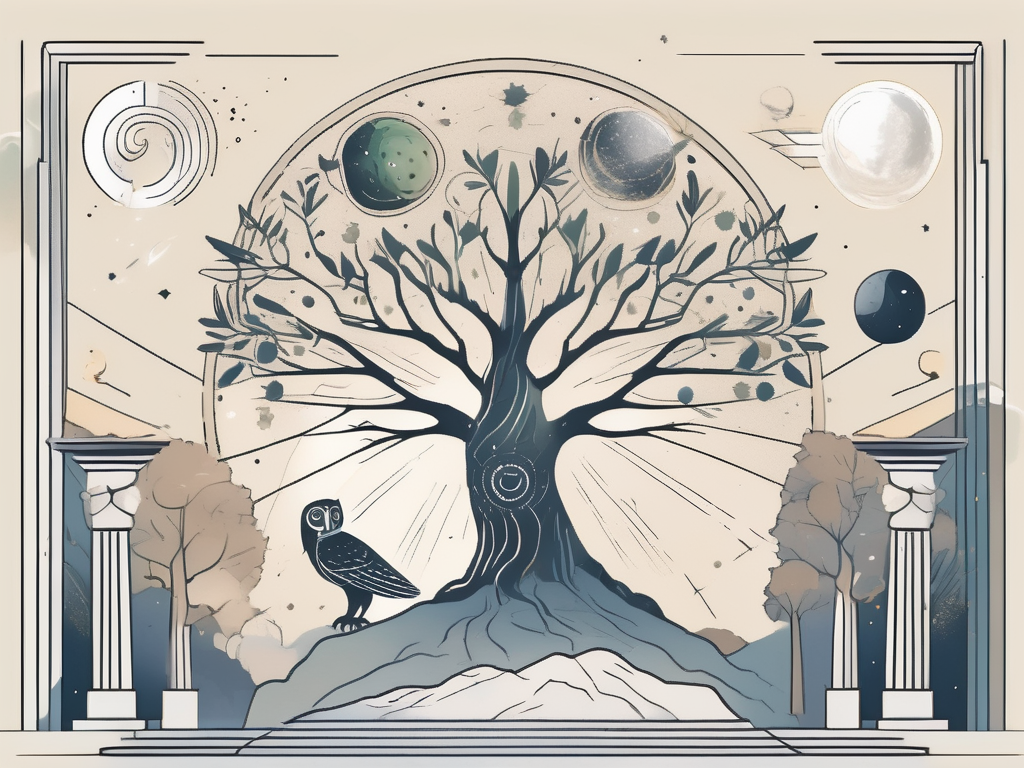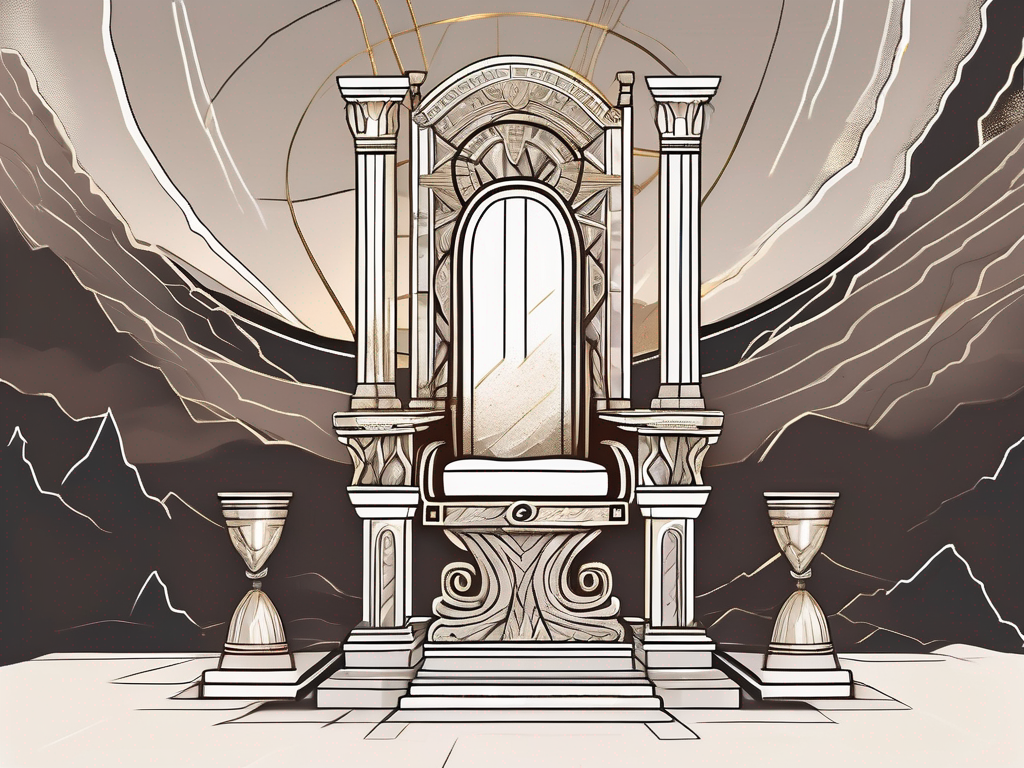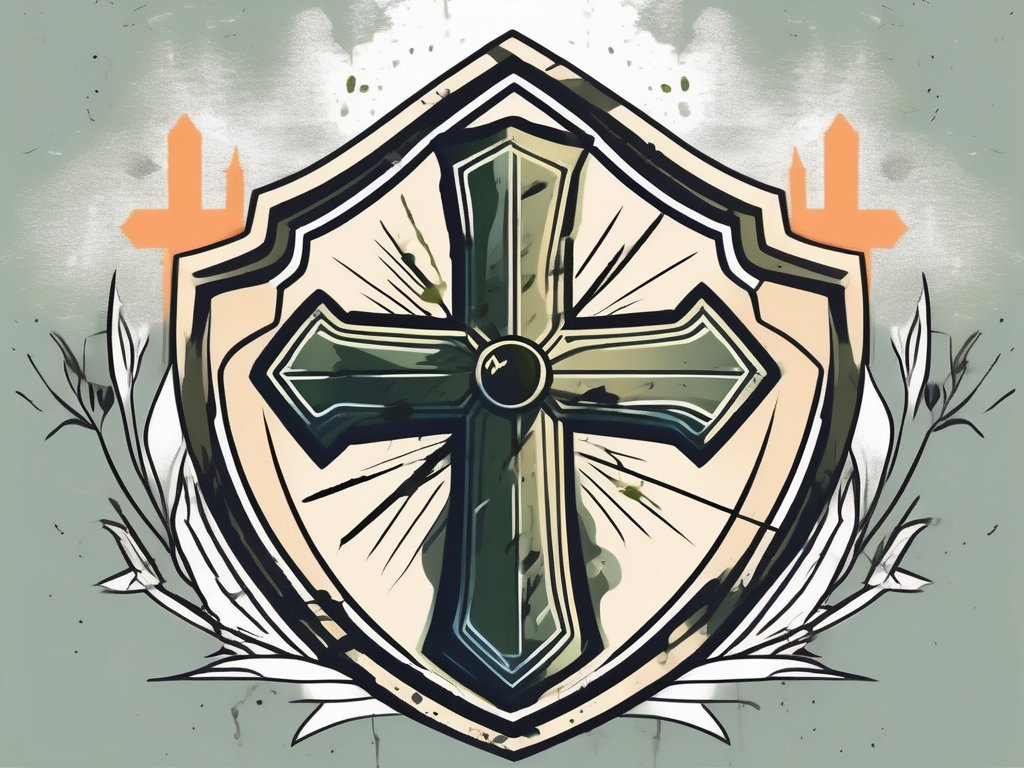Ares, the Greek god of war, is a figure shrouded in mystery and power. In Greek mythology, Ares is often depicted as a fearsome and bloodthirsty deity, embodying the brutality and chaos that accompany warfare. Yet, there is more to Ares than meets the eye. Understanding his role in Greek mythology is a fascinating journey into the complex tapestry of ancient beliefs and traditions.
Understanding the Role of Ares in Greek Mythology
In Greek mythology, Ares is the son of Zeus, the king of the gods, and Hera, the queen of the gods. Born in the turbulent period of the Titans’ rule, Ares emerged as one of the 12 Olympian gods who eventually overthrew the mighty Titans. From his birth, Ares was destined to become the embodiment of war, conflict, and violence.
Ares’ birth was not without its own share of drama. Legend has it that when Hera discovered she was pregnant with Ares, she became consumed with jealousy and anger. She resented the fact that Zeus had fathered Ares with another woman, and she felt threatened by the potential power and influence of her unborn child. This tumultuous beginning set the stage for Ares’ tumultuous life.
As the god of war, Ares possessed a fiery temperament and an insatiable thirst for battle. He was known for his impulsiveness and love of chaos, often rushing into conflicts with little regard for strategy or consequence. Ares reveled in the chaos and destruction that war brought, finding pleasure in the clash of swords and the screams of the wounded.
Despite his reckless nature, Ares was also associated with courage and heroism. Warriors who sought his favor before heading into battle believed that Ares would grant them strength and protection. They saw him as a symbol of valor and a source of inspiration in the face of adversity.
While Ares was feared and revered by mortals, his relationship with the other gods was complex. He had a tumultuous relationship with his father Zeus, who often viewed Ares as reckless and lacking the wisdom needed to lead armies effectively. Zeus saw Ares’ impulsive nature as a liability, and he often clashed with his son over matters of war and strategy.
Despite this tension, Ares found support and camaraderie among other gods. One of his most infamous relationships was with Aphrodite, the goddess of love. Their love affair was scandalous and caused much turmoil among the gods. Ares and Aphrodite’s relationship symbolized the passionate and often destructive nature of love and war, intertwining the two in a tumultuous dance.
Overall, Ares played a significant role in Greek mythology as the god of war. His fiery temperament, love of chaos, and complex relationships with other gods made him a captivating and controversial figure. Whether seen as a symbol of courage and heroism or as a reckless instigator of conflict, Ares left an indelible mark on the ancient Greek pantheon.
The Symbolism and Representation of Ares
Ares, the Greek god of war, was a figure of great significance in ancient mythology. His portrayal in art and sculpture showcased his power and ferocity, leaving a lasting impression on those who beheld these masterpieces.
Ancient artists and sculptors, with their skillful hands and keen eye for detail, sought to capture the essence of Ares’ might and presence. Paintings and sculptures depicted him in full armor, his muscular form exuding strength and readiness for battle. With a spear or sword in hand, Ares stood as a formidable warrior, embodying the very essence of war itself.
These artworks aimed to convey the awe-inspiring nature of Ares on the battlefield. The artists skillfully portrayed the intensity and determination in his eyes, as if he were about to charge into the midst of a fierce conflict. The intricate details of his armor, meticulously crafted, added to the realism and sense of power that emanated from these representations.
Ares in Ancient Art and Sculpture
Ares’ presence in ancient art and sculpture extended beyond his depiction as a warrior. Artists also explored the more nuanced aspects of his character, capturing the complex emotions and attributes associated with the god of war.
In some artworks, Ares was portrayed as a figure of divine beauty, his features chiseled and perfect. This representation emphasized his allure and charisma, which were said to have captivated both mortals and gods alike. The artists skillfully captured the dichotomy of Ares’ character, showcasing his attractiveness alongside his destructive nature.
Other depictions of Ares focused on his role as a leader and strategist. These artworks portrayed him in moments of contemplation, as he devised battle plans and strategies to ensure victory for his side. The artists skillfully conveyed the intelligence and cunning that lay beneath Ares’ fierce exterior, highlighting his ability to outmaneuver his enemies both on and off the battlefield.
Animals and Objects Associated with Ares
The symbolism of Ares extended beyond his physical representation. Various animals and objects were associated with the god of war, further refining his character and adding depth to his mythology.
The vulture, with its association with death and destruction, was considered sacred to Ares. This bird of prey, known for its scavenging nature, represented the aftermath of battle and the carnage left in its wake. Its inclusion in Ares’ symbolism served as a reminder of the devastating consequences of war.
Another animal associated with Ares was the wild boar. Fierce and untamed, the boar embodied the ferocity and aggression that Ares himself possessed. It was believed that Ares would send these formidable creatures into battle as a sign of his favor, inspiring fear and awe in his enemies.
In addition to animals, Ares was closely associated with his emblematic weapon, the shield known as the Aegis. This shield, believed to possess supernatural powers, was a symbol of divine protection. It was said that Ares carried the Aegis into battle, using its magical properties to shield himself and his allies from harm. The inclusion of the Aegis in Ares’ symbolism emphasized his role as a protector and guardian in times of conflict.
Ares in Greek Literature and Philosophy
Ares in Homer’s Iliad and Odyssey
The epic poems of Homer, the Iliad, and the Odyssey, offer profound insights into Ares’ character and role in Greek society. In the Iliad, Ares is portrayed as a formidable warrior, driving the Trojans to battle against the Greeks. However, his impulsive and reckless nature often leads to unfavorable outcomes. For example, in Book 5 of the Iliad, Ares aids the Trojans in their assault on the Greek camp, but is ultimately wounded by the hero Diomedes, who is favored by the goddess Athena. This defeat highlights Ares’ vulnerability and serves as a reminder that even the god of war can be overcome by strategic thinking and divine intervention.
In the Odyssey, Ares represents the destructive forces that must be overcome to achieve tranquility and harmony. While the main focus of the Odyssey is on the hero Odysseus’ journey home, Ares’ presence is felt in the form of the suitors who plague Odysseus’ wife Penelope and attempt to take over his kingdom. These suitors embody Ares’ aggressive and violent nature, disrupting the peace and order that Odysseus seeks to restore. Odysseus’ eventual triumph over the suitors can be seen as a symbolic victory over the destructive influence of Ares, emphasizing the importance of wisdom and cunning over brute force.
Philosophical Interpretations of Ares
Greek philosophers contemplated the deeper meaning behind Ares’ existence. Some saw him as a necessary aspect of the human psyche, embodying the primal instincts of aggression and survival. In this view, Ares represents the raw energy that fuels human ambition and the drive to overcome obstacles. Without Ares, it is argued, humanity would lack the motivation and resilience necessary for progress and achievement.
On the other hand, others regarded Ares as a cautionary figure, warning against the dangers of unchecked violence and the devastating consequences of war. These philosophers emphasized the need for restraint and the cultivation of peaceful virtues, arguing that Ares’ influence should be tempered by reason and moral principles. They saw Ares as a reminder of the destructive potential within human nature and the importance of channeling aggression into constructive endeavors.
Furthermore, Ares’ complex relationship with his sister Athena, the goddess of wisdom and strategic warfare, offers additional insights into his character. While Ares represents the brute strength and passion of war, Athena embodies the strategic intelligence and disciplined approach to conflict. This juxtaposition highlights the tension between instinct and reason, and the delicate balance that must be struck in the pursuit of military success.
In conclusion, Ares’ portrayal in Greek literature and philosophical discourse reflects the multifaceted nature of war and its impact on society. From Homer’s depiction of Ares as a powerful yet impulsive warrior, to the philosophical debates surrounding his significance, Ares serves as a complex symbol that invites contemplation on the human condition and the eternal struggle between chaos and order.
The Worship and Cult of Ares
Temples and Sacred Sites of Ares
Though not as widely worshipped as other gods in ancient Greece, Ares still had dedicated temples and sacred sites. The most famous temple of Ares was located in Athens, where the god was honored as part of the larger pantheon. In addition, various cities and regions held rituals and festivals in Ares’ honor, seeking his blessings for military prowess and protection.
Rituals and Festivals Dedicated to Ares
During festivals dedicated to Ares, lavish ceremonies took place to pay homage to the god of war. These rituals often involved elaborate processions, sacrifices, and athletic competitions. Participants sought to honor Ares and gain his favor, hoping for victory in battles and protection on the battlefield.
Ares’ Influence on Modern Culture
Ares in Modern Literature and Film
Ares’ captivating persona continues to inspire modern storytellers. In literature and film, he is often portrayed as a complex antagonist, embodying the darker aspects of war and conflict. From classic works like Shakespeare’s “Henry V” to contemporary novels like Rick Riordan’s “Percy Jackson” series, Ares remains a compelling and multifaceted character.
Ares as a Symbol in Contemporary Society
In contemporary society, Ares has become a symbol representing the destructive nature of war and the need for peaceful resolutions. His mythological presence serves as a cautionary tale, reminding us of the devastating consequences that arise from uncontrolled aggression and unbridled violence. Ares’ symbolism prompts us to seek diplomatic solutions and strive for a world free from the horrors of war.
In conclusion, Ares, the Greek god of war, holds a prominent place in Greek mythology and has left an enduring legacy throughout history. From his complex relationships with other gods to his representation in art, literature, and philosophy, Ares continues to captivate and provoke thought. While his image may evoke visions of bloodshed and chaos, Ares also serves as a reminder of the importance of balance, diplomacy, and the pursuit of peace.
